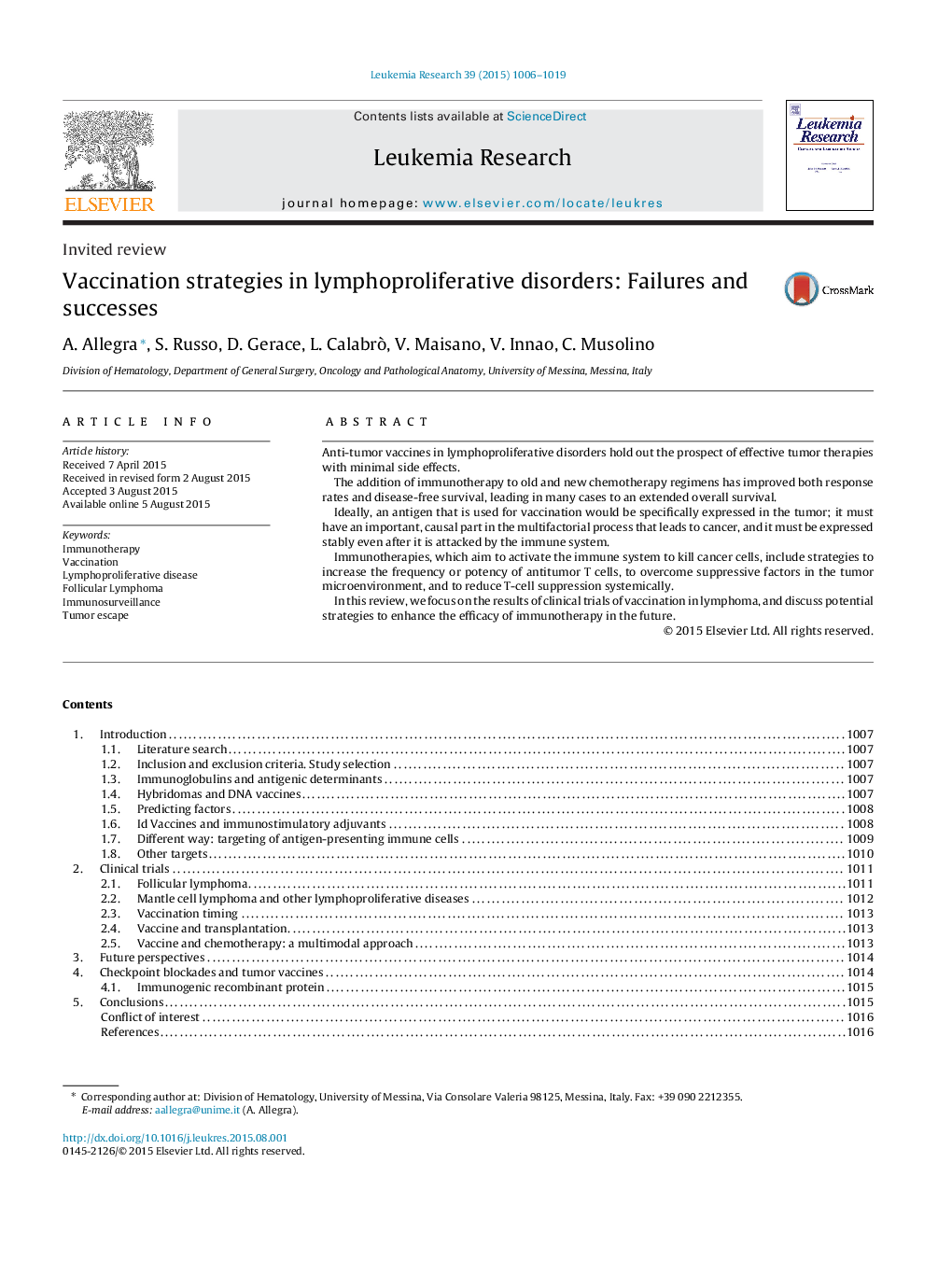| Article ID | Journal | Published Year | Pages | File Type |
|---|---|---|---|---|
| 2136493 | Leukemia Research | 2015 | 14 Pages |
•Anti-tumor vaccines hold out the prospect of effective tumor therapies.•Lymphomas are weakly immunogenic.•This prevent the recognition of tumor-associated antigens by cytotoxic T lymphocytes.•We focus on the results of clinical trials of vaccination in lymphoma.•We discuss potential strategies to enhance the efficacy of immunotherapy.
Anti-tumor vaccines in lymphoproliferative disorders hold out the prospect of effective tumor therapies with minimal side effects.The addition of immunotherapy to old and new chemotherapy regimens has improved both response rates and disease-free survival, leading in many cases to an extended overall survival.Ideally, an antigen that is used for vaccination would be specifically expressed in the tumor; it must have an important, causal part in the multifactorial process that leads to cancer, and it must be expressed stably even after it is attacked by the immune system.Immunotherapies, which aim to activate the immune system to kill cancer cells, include strategies to increase the frequency or potency of antitumor T cells, to overcome suppressive factors in the tumor microenvironment, and to reduce T-cell suppression systemically.In this review, we focus on the results of clinical trials of vaccination in lymphoma, and discuss potential strategies to enhance the efficacy of immunotherapy in the future.
